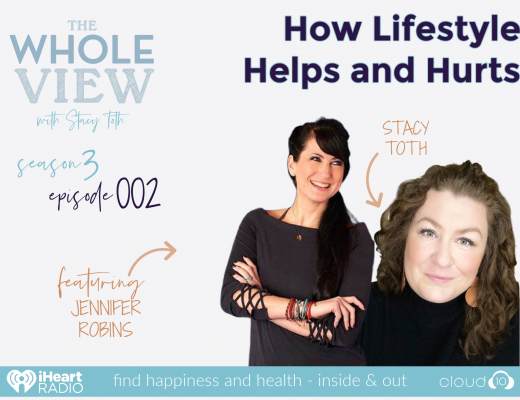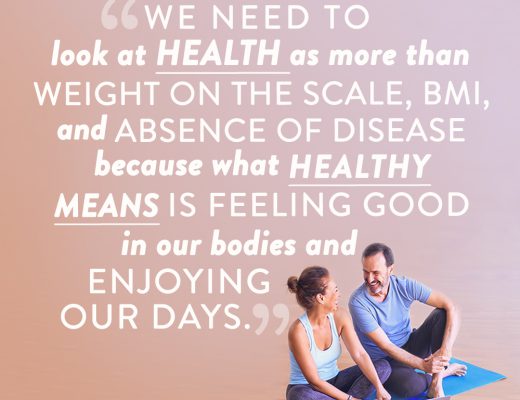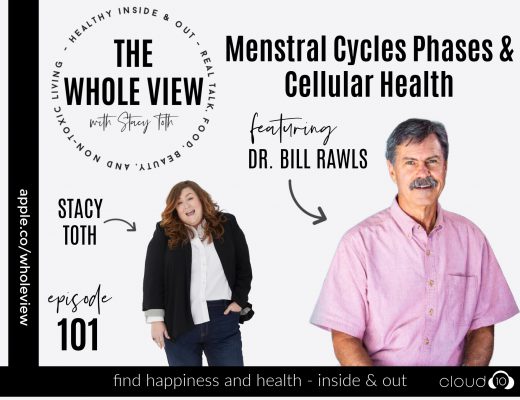With over 46 years of experience in the medical field, Nephrologist Dr. Paul Kimmel joins Stacy to share a remarkable account of the kidney and the scientific, medical, and health evolution tied to our understanding of it. You’re guaranteed to walk away with a better understanding of this important organ’s function as well as the history of dialysis and transplantation in the United States.
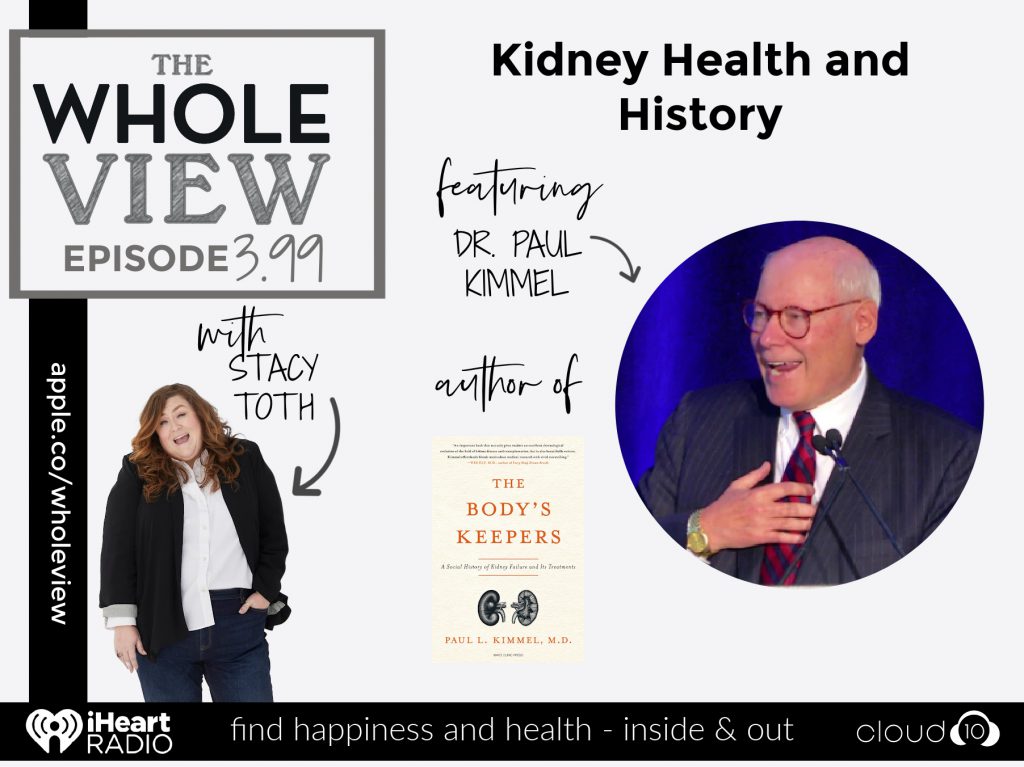
Find Dr. Kimmel’s New Book:
If you enjoy the show, please leave a review. Letting people know on iTunes or however you listen that it’s worth their time could change someone’s life!
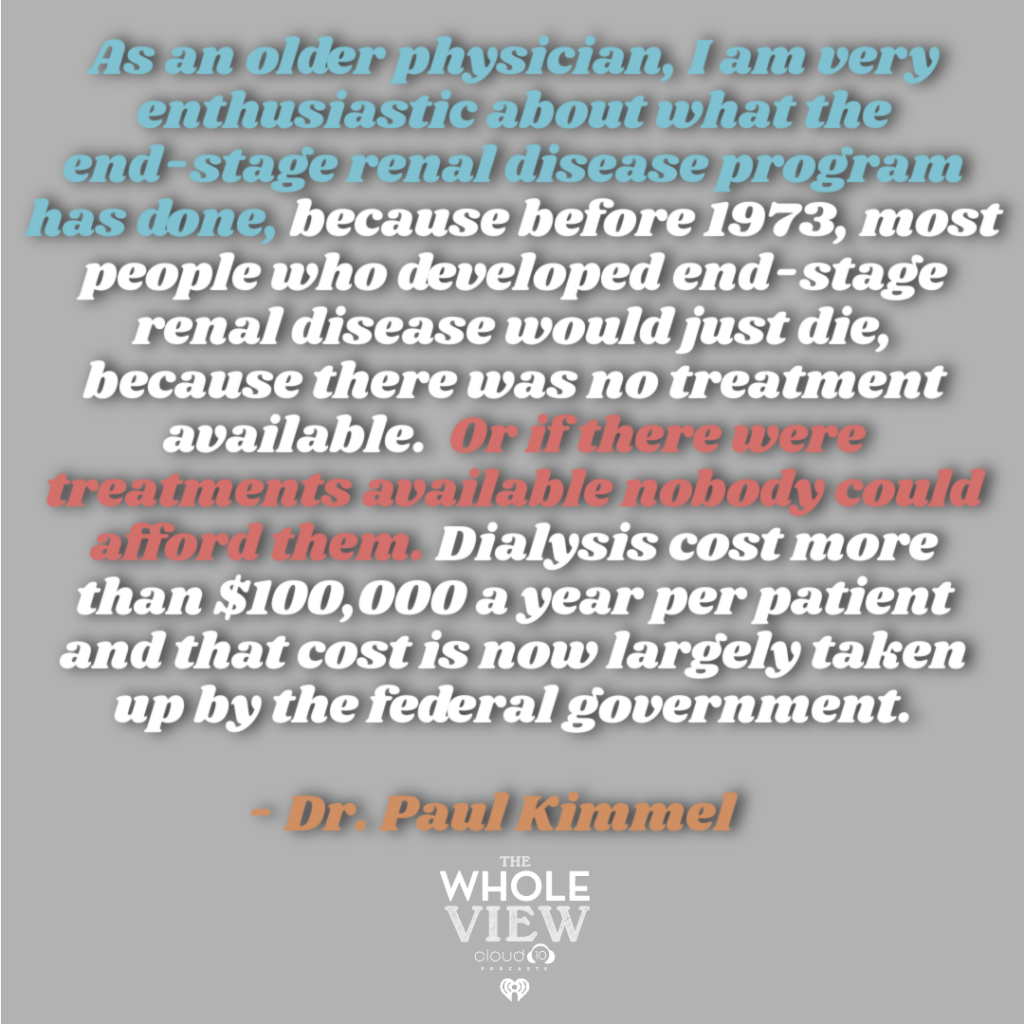
Key Takeaways
Introductions
- Paul L. Kimmel, M.D. is a Clinical Professor of Medicine Emeritus at George Washington University in Washington, D.C. He is also s a Master of the American College of Physicians, and a Fellow of the Royal Society of Physicians in London. He has cared for patients with over 46 years of experience in the medical field.
- Furthermore, Dr. Kimmel is the author of more than 300 peer-reviewed scientific papers, and an editor of monographs on HIV-associated kidney diseases, nutrition in patients with kidney disease, psychosocial aspects of kidney disease and a textbook entitled Chronic Renal Disease.
Kidney Health & History
- The kidney is an extraordinary organ. So In many ways it’s the regulator, the metronome, the keeper of the human body’s delicate equilibrium. And on a given day, minute by minute, it purifies the body of toxins it encounters from diet, climate, activity, and injury.
- Unfortunatley, kidney disease affects a huge swath of the population – variably estimated in the US to involve from 9-15% of adults, or up to 37 million people. So while it’s quite common, it is often undetected and untreated, especially in underrepresented, underserved minority populations.
- Before 1973, most people who developed end-stage renal disease would just die, because there was no treatment available. Or, if there were treatments available nobody could afford them. The federal government now largely bears the cost of dialysis, which exceeds $100,000 per patient annually.
Social Factors
- So Dr. Kimmel discusses in his book how how “advances in the science of genetics, exemplified by the federally funded Human Genome Project, we have learned that people of African descent have inherited gene variants that magnify their risk of developing kidney disease by extraordinary adaptations, which may have protected people from parasitic diseases on the African continent, have become extremely maladaptive in Western societies, rendering those at risk susceptible to developing end-stage kidney disease (ESKD) as they age.”
- However, African Americans may wait for 4-5 years for kidney transplant after starting dialysis. The other fact that became apparent about 30 years ago is that the rate of transplantation was not the same in white patients and African American patients in the United States. And, in a series of sobering but eloquent articles in the late 1990s, these disparities were pointed out that at every step in the transplantation process from knowing about transplantation to evaluation for kidney transplant to being on the waiting list to actually receiving it, Black patients were relatively less likely to complete the process. And that’s a staggering indictment of the federal system that should be characterized by equity for all people because the United States taxpayers are paying for these treatments.
- Fun Fact: Dr. Kimmel references a JAMA article on “the Power of Placebo” from 1955 that Stacy included a discussion in a recent show on mind-body connection. Stacy notes that she didn’t know that the author also helped to establish and define informed consent, in a paper titled Experimentation in Man after horrors of WWII, which had a huge impact on modern medicine especially for transplants and organ donation.
Next Steps
- The real heroes are the patients, as well as living donors who can change the outcome for many people. So make sure you’re on the organ donation list (as well as other life-saving matching lists like for bone marrow and more)!
Studies, References & Products
- The Body’s Keeper’s: A Social History of Kidney Disease and Treatment by Paul L. Kimmel, MD
- National Institute of Diabetes and Digestive and Kidney Disease
Sponsors
- Beautycounter.com/StacyToth | Use code CLEANFORALL20 for 20%, including already discounted regimens!
- TryNom.com/wholeview | Get a two-week trial for 50% off!
- Indeed.com/WHOLEVIEW | Get a $75 sponsored job credit
Want more info on our Real Life? Healthy recipes, parenting tips, and general lifestyle stuff goes out in our Real Everything newsletter, join here.
So never want to miss a post, sale, or deal? Join my Healthy Inside & Out e-mail list for more info on non-toxic living and safer skincare!

